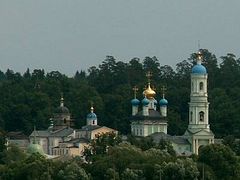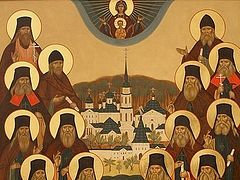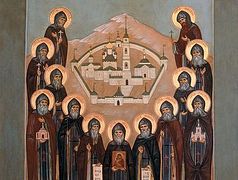Lights of the Orthodox Faith, unshaken pillars of
monasticism,
Consolers of the Russian land, O holy elders of
Optina,
Who have acquired love for Christ and have laid down your
lives
for your children…
On October 11/24 we celebrate the Synaxis of the Holy Fathers and Elders who have shown forth at Optina Hermitage.
The holy fathers used to say, “Better to live with a spiritual guide in the marketplace than alone in the wilderness.” And again, “Spiritual orphanhood is harder than physical orphanhood.” St. Macarius wrote, “Attaining salvation consists precisely in acquiring a guide and cutting off one’s own will and reason.”
Sometimes they say that it is quite simple for laypeople to live according to the commandments. Yes, a commandment is given to us, but in life it may be fulfilled different ways in different circumstances, and it is not always easy to understand what is occurring—whether it is a temptation, or whether it is what the Lord wants of you.
The spiritual life does not mean just living in the clouds; it consists of the discovery of the laws of spiritual life, as far as they are applied to a given person in his situation and in his circumstances. And the Optina Elders revealed these spiritual laws to laypeople, helped them to understand and give meaning to life’s circumstances, and instructed them on the way to salvation.
All the Optina Elders were spiritual guides for laypeople. Spiritual guidance and care took place in person and through correspondence, and through instructions. St. Joseph wrote, “I have faith that every person who comes to Optina Hermitage in extreme need will find satisfaction by God’s Mercy… by the prayers of our great fathers.”
The holy Optina Elders gave spiritual guidance and care to all Russia for more than a century, and continue to instruct their descendants, and continue to pray for them. Let us hold ourselves close to their instructions and teachings as to living and healing water.
***
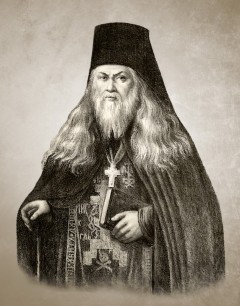 Hieroschemamonk Lev (Nagolkin) (1768—1841)
Hieroschemamonk Lev (Nagolkin) (1768—1841)
-
Above all keep from blaming and judging your close ones. We do have something to worry about: our sinful sores stink—we have to busy ourselves about them. You will not have to answer for others, only for yourself.
-
Whoever feels that what he does is according to God, it will not be bad for him here, and it will be good for him there.
-
Keeping the Lord’s commandments revives the soul; it brings peace to your body, and abundant comfort.
St. Moses
-
If you somehow pardon someone sometime, for this you yourself will be pardoned.
 Schema-Abbot Anthony (Putilov) (1795-1865)
Schema-Abbot Anthony (Putilov) (1795-1865)
-
The Pharisees both prayed and fasted more than we do, but without humility all their labor was nothing; so apply yourself the most to obtaining the Publican’s humility, which usually is born of obedience, and that will be sufficient for you.
-
Moreover, the Holy Fathers have remarked that when a person prepares to receive Holy Communion or awaits the coming of one of the Feasts, the devil tries with all his might to cause that person irritation and thus upset his soul, so that that day would not be passed in joy in the Lord, but in demonic sorrow. The causes of his attacks on us are varied, but the most important is the judging of our neighbors—which sin, as do the sins of licentiousness and other temptations, defiles not only the body, but also our very soul.
-
Emotional peace is obtained from perfect devotion to the will of God, without which nothing exists. And if your husband really is not good, ask yourself in all good conscience before God: “Do I, a sinner, really deserve a good and kind husband?” And your conscience without fail will say that you do not deserve a perfectly good husband; and then in humility of heart, in submission to God’s will, you will love him with all your heart and will find much that is good, which up until then you didn’t see.
 Hieroschemamonk Macarius (Ivanov) (1788-1860)
Hieroschemamonk Macarius (Ivanov) (1788-1860)
-
One passion reproaches another: where there is self-love, greed for money gives way—and the opposite also happens. And we know that all vices sometimes leave a person, and only one stays with him—pride, which is sufficient to take the place of all the others.
-
But we can in no way dare to blame someone who offends us, even though it seemed to be an unjust offense. Rather we must consider him to be an instrument of God’s Providence, sent to us to show our disposition.
-
No one can offend us or irritate us if the Lord doesn’t let this happen for our benefit, or as a punishment, or to try us and correct us.
St. Hilarion:
-
If you reconcile your heart to the one who is making you angry, then the Lord will tell his heart to be reconciled with you also.
-
We must start everything that we do by calling on God’s name.
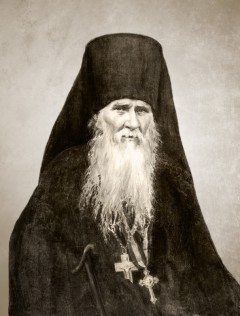 Hieroschemamonk Ambrose (Grenkov) (1812-1891)
Hieroschemamonk Ambrose (Grenkov) (1812-1891)
-
If you want to have love, then do the works of love, even if at the beginning you do them without love.
-
We should live on earth like a wheel turns: it touches the earth only at one little point, while all the rest of it ceaselessly rushes upward; but we, how we lie down on the earth and cannot get up!
-
The best thing of all is to live simply. Don’t rack your brains over anything. Pray to God. The Lord will arrange everything, only live more simply. Don’t torment yourself thinking about how and what to do. Let it be as it happens: that’s what it is to live more simply.
-
A cross that you have begged for is hard to bear—better to devote yourself to God’s will in simplicity.
-
Whoever has an evil heart should not despair, because with God’s help a person can correct his heart. One only needs to watch oneself attentively and not miss an opportunity to be helpful to one’s neighbors, to confide often in one’s elder1, and to give alms according to one’s means. Of course, one cannot do this all at once, but the Lord will wait patiently. He only cuts short a person’s life when He sees that he is ready to cross over to eternal life, or else when He sees no hope of the person’s correction.
-
In God’s judgment, it is not one’s character that has significance, but the direction of one’s will. Understand that character only has significance in the judgment of men, and according to it they are either praised or censured; but in God’s judgment people’s characters, as natural characteristics, are neither condoned nor censured. The Lord looks at a good intention and the forcing of oneself to do good, and He values a person’s resisting the passions, although sometimes one may be conquered by something due to his weakness. And again, He alone judges indifference about this, for He knows the person’s innermost heart and conscience, his natural power to do good, and the circumstances surrounding him.
 Hieroschemamonk Joseph (Litovkin) (1837-1911)
Hieroschemamonk Joseph (Litovkin) (1837-1911)
-
If you notice a fault in a close one that you would like to correct, if it destroys your peace of mind and annoys you, then you also are sinning and, consequently, you will not correct a fault by a fault—it is corrected by meekness.
-
And it’s good for us when they jostle us. The tree that the wind sways more is strengthened more at the roots, but the one that lives in the calm falls immediately.
-
As things come together, that’s how we should live, because the circumstances that surround us are not simply accidental, as many of our contemporary, new-fangled know-it-alls think. Everything happens to us by God’s Providence, which ever looks after the salvation of our souls.
-
We ourselves aggravate our sorrows when we begin to complain.
-
Have what is needful and necessary, but don’t collect anything unnecessary. But if you don’t have anything and are upset about it, then what is the point? — It’s better to follow the middle course.
-
Contrariness acts in a person more strongly than anything. Sometimes a person will even do something difficult—by his own desire. But just tell him to do something easy, and he immediately gets upset. But we have to do as we are told.
-
Just as we must not seek out honor, so neither must we refuse it, as we live in society for the good of others. Honor imposed [by others] is also from God.
-
The very sin that each person thinks is so bad in his neighbor is the one that accuses himself, the accuser.
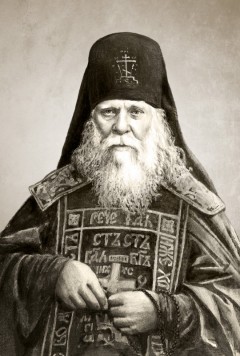 Hieroschemamonk Anatoly (Zertsalov) (1824-1894)
Hieroschemamonk Anatoly (Zertsalov) (1824-1894)
-
Let us submit to God and humble ourselves, and the Lord will cover us, and we will be holy. But until we humble ourselves and accept God’s will, until we propitiate God—though we beat our heads against the floor doing prostrations—the passions will not diminish.
-
Patiently endure everything and you will not only be peaceful yourself, but you will also give peace to others! But as soon as you begin to keep scores, you will lose your peace and along with it your salvation.
-
I’ll tell you a secret, I’ll tell you the very best way of finding humility. This is what it is: to patiently endure every pain that pierces your proud heart.
-
Without winter there would be no spring, and without spring there would be no summer. So it is also in the spiritual life: a little consolation, and then a little grief—and thus little by little we work out our salvation.
-
Let us accept everything from the hand of God. If He comforts us, let us thank Him. And if He doesn’t comfort us—let us thank Him.
-
Learn to be meek and of few words, and you will be loved by everyone. But open emotion is like open gates: the dog runs through them, the cat runs through them…and they leave their droppings.
-
We are obliged to love everyone, but we don’t dare demand that everyone love us.
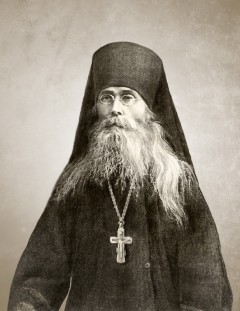 Schema-Archimandrite Barsanuphius (Plikhankov) (1845-1913)
Schema-Archimandrite Barsanuphius (Plikhankov) (1845-1913)
-
A sure sign of the deadening of the soul is evading church services. A person who has grown cold towards God first of all begins to avoid going to church—in the beginning he tries to arrive at the service a little late, and then he completely stops visiting God’s church.
-
The Lord puts each soul in the position, and surrounds it with the atmosphere, which will be the most conducive to its improvement and success.
-
Our whole life is a great mystery of God. All the circumstances of our life, however insignificant they may seem, have huge significance. We will only fully understand the meaning of our present life in the age to come. How circumspectly we ought to relate to it! But we leaf through our life like a book, page after page, not realizing what is written there. There is nothing accidental in life—everything is wrought by the will of the Creator.
-
We have to remember that the Lord loves everyone and cares about everyone; however, if even by human standards it is dangerous to give a beggar a million, because it may ruin him, while 100 rubles can more easily set him on his feet, how much better does the All-Knowing Lord know what will benefit whom.
-
The most difficult thing is prayer. Every virtue becomes habit out of practice, but we need to force ourselves to pray right up until death itself. By prayer our “old man” is opposed, and the enemy especially rises up against a person who is praying.
-
I have to listen to complaints about the fact that we are now going through difficult times, that now free rein is given to all kinds of heretical and godless teachings, that the Church is being subjected to the attacks of enemies from all sides and that it will become terrible for Her, that these murky waves of unbelief and heresy are overcoming Her. I always answer, “Don’t worry! Don’t be afraid for the Church! She will not perish: the gates of hell will not prevail against Her, right to the Dread Judgment itself. Do not fear for Her but for yourself—that’s what you have to fear for, and it’s true that our times are very difficult. Why? Because now it is especially easy to fall away from Christ, and then—perish.”
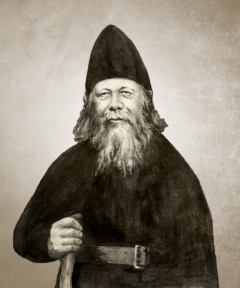 Hieroschemamonk Anatoly (Potapov) (1855-1922)
Hieroschemamonk Anatoly (Potapov) (1855-1922)
-
They say that church is boring. It’s boring because they don’t understand the services! You have to study the services! Church is boring because they don’t care about it—it doesn’t seem to belong to them, but to someone else. Even if they at would least bring some flowers or greens for decorations, if they took part in all the fuss of decorating the church, then it wouldn’t be boring.
-
Live simply, by your conscience, and always remember that the Lord sees—and don’t pay attention to all the rest!
St. Nectarius
-
The main thing is to beware of judging your neighbors. As soon as it enters your head to judge someone, right then and there say to the Lord with attention, “Lord, grant me to see my own faults and not to judge my brother.”2
-
You can’t demand that a fly do the work of a honeybee—you have to give to each person according to his measure. You can’t give to everyone identically.
 Hieromonk Nikon (Belyaev) (1888-1931)
Hieromonk Nikon (Belyaev) (1888-1931)
-
There is not, never was, and never will be a place on earth without sorrow. There can only be a place without sorrow in the heart, when the Lord is in it.
-
It is a mistake to seek after human truth—seek only God’s truth.
-
Always remember the law of the spiritual life: if you get upset about some fault of another person and you condemn him, afterwards the same fate will befall you, and you will suffer from the same.
-
No matter how insignificant it may seem to you, do everything well, as in the presence of God. Remember that the Lord sees everything.
Our Holy Fathers, Elders of Optina, pray to God for us!


